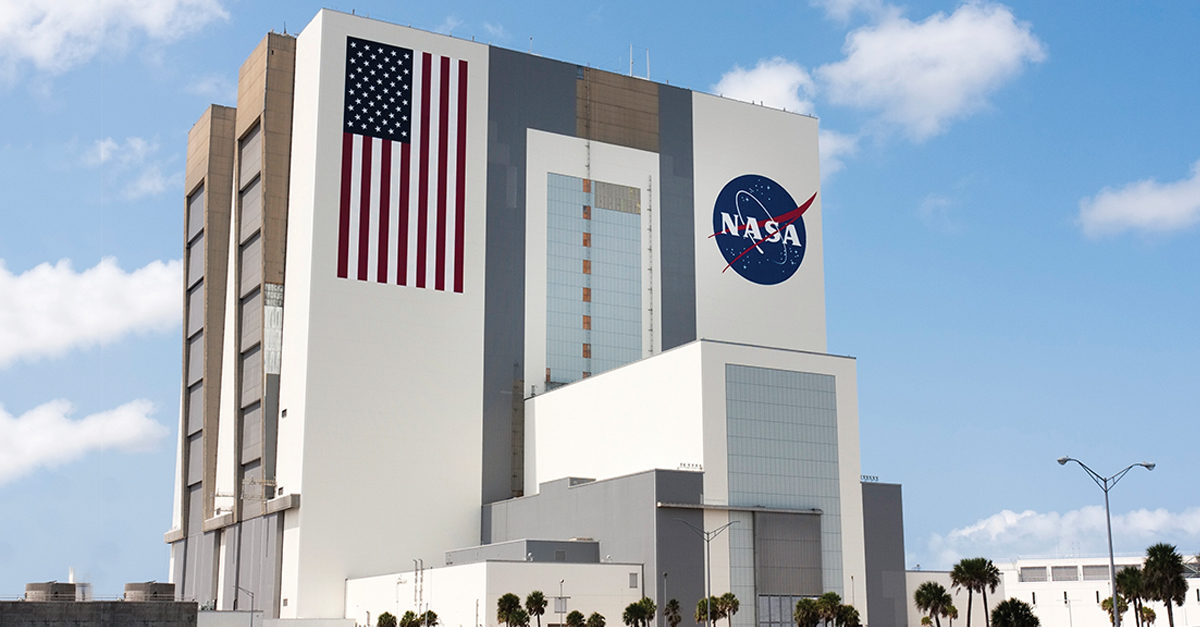Ever wonder who changes out the trash in the Oval Office? Or what type of equipment is used to clean the floors of NASA labs?
Cleaning and facility maintenance can be some of the most mission-critical services provided in situations where national security, scientific leadership, and human health are on the line. While it’s easy for those in our industry to see that all cleaning is critical, some facilities require extra security clearances, expertise, and training for those who provide cleaning services in their spaces. This is due to the extremely high level of security, sensitivity, and technical knowledge involved—and the stakes are incredibly high.
To learn more about the cleaning, training, and employee engagement practices some clients might require, we spoke with Laurie Sewell, president and CEO of Servicon Systems, Inc., a cleaning contractor that serves facilities in the aerospace, health care, biotech, federal and municipal government, and government defense contracting industries.
Hiring the Right Team
You might not realize how much is involved with accessing, let alone maintaining, certain types of facilities—not only government facilities, but facilities where high-tech engineering or medical research occurs.
Those who clean in high-security areas are held to the same vetting processes as anyone else who works in the building. So an employee who is cleaning the restrooms at the Pentagon is adjudicated to the same standards and levels of any U.S. military and government personnel also working at the Pentagon. Labs in the biotech world might require even more clearance than that. For example, Servicon serves some clients who make pharmaceutical products that include synthetic narcotics. “Our people have to undergo specific types of background checks to work around those substances,” Sewell says.
In the segment of the cleaning industry where your level of background check signifies a more security-sensitive work environment, clearance level can become a carrot that keeps employees motivated and engaged. “Our people are very motivated to get higher and higher levels of clearances because they appreciate they are more valuable to the client and more valuable to us,” Sewell says.
Employees need to pass more than a detailed and top-security set of clearances and background checks. During the hiring process, there are specific questions that need to be asked even before running any clearances. This helps to gauge the character of the job applicant, as it’s important to bring someone on who takes pride in their work and understands the value of what they do.
Training for Secure Environments
Each type of client will require its own training program to meet specific standards, especially in highly-sensitive environments. For example, in biotech and health care, there are standards set by the U.S. Food and Drug Administration (FDA). In facilities that focus on aerospace and electronics, the need is for contamination control specialists rather than janitors or custodians. In those types of facilities, all service providers are required to have four different levels of certification in electrostatic discharge and foreign object debris training. Here is one way to think of the important role that this training plays in maintaining a healthy environment: “Germs kill humans,” Sewell says. “And static and dust kill electronics.”
Maintaining a facility that produces electronics or aerospace equipment is not a traditional dusting and mopping gig. For example, contamination control specialists know never to wipe a surface more than once. Rather than go over a surface in a back-and-forth motion with a rag, they must only wipe top to bottom and then move on to the next area with no overlap. The motions in these facility scenarios tend to be very specific, and many times they are counterintuitive for personnel who come from a traditional cleaning background.
In some scenarios, contamination control specialists will need to don their “bunny suits,” which look much like the white suits worn in movies like “E.T.” or “Charlie and the Chocolate Factory,” and sometimes include masks that cover the entire face. Training for these spaces (and other high-security buildings) not only includes how to do the work, but also how to enter and exit the room, put on the bunny suit and take it off, and wear facial hair. Training also covers which equipment has to remain resident inside of the room.
Additionally, when dealing with highly sensitive facilities, there is always new information coming through to management and the employees on the ground. This information can include details about national defense or security threats, while other details may cover new regulations for badges and clearances. For example, the process of entering and exiting most facilities at this level of security and specialty is constantly changing, which means contractors need to be retrained. “You’re not just training for skill,” Sewell says. “You’re training for access.”
The goal for contractors with clients in sensitive industries is to create a culture of security; that message needs to be consistent so that it becomes part of what everyone does. One of the most important training topics for employees who maintain high-security or highly specialized facilities goes beyond the expected scope of service work. Employees are trained on what to look for in any specific situation and what to do if something does not look right. That could include spotting an object that shouldn’t be in the trash, a contaminant in the workspace, or even a building occupant who isn’t following protocol. “We are in essence part of our clients’ team of watchdogs,” Sewell says.
Lessons Learned
While breaking into the world of high-security and high-tech facilities maintenance is not easy—there is little room for error and the stakes are high—any building services contractor can use the same principles that companies like Servicon employ to engage their workforce and strengthen client relationships. One of the biggest lessons to learn is the elevated role that cleaning plays in a facility’s overall purpose.
Cleaning has a huge impact on human health and product quality assurance. Whether a facility is manufacturing pretzels or life-saving medicine, the end-product is directly linked to the facility’s cleanliness and orderliness. In other words: Those cleaning that facility are ultimately responsible for the outcome. When you can communicate that high level of responsibility to your own workforce, it elevates the view your employees have of their role. What you always hope for is a client that values your employees’ role, too.
“When people start realizing that we are key to the products, health of workers, and healing of people in hospitals—that’s when people start wanting to pay people what they deserve and treating them respectfully,” Sewell says. “We want people to understand what we do has value from the minute somebody comes to work with us and carry that through their journey with us. Getting the client to see it is the next step.”
Types of Sensitive Facilities
There are multiple industries and facility types that require extra security clearance, sensitive considerations, and high-tech training:
- Aerospace engineering labs
- Biomedical engineering labs
- Pharmaceutical factory
- Aerospace factory
- Government defense contractors
- Government buildings
- Municipalities
- University labs
- Military bases
- Top-secret corporate labs.
Obtaining Security Clearance
According to the U.S. Department of State, security clearance means that an individual’s personal and professional history must show that person is loyal to the United States and also include “strength of character, trustworthiness, honesty, reliability, discretion, and sound judgment, as well as freedom from conflicting allegiances and potential for coercion and a willingness and ability to abide by regulations governing the use, handling, and protection of classified information.” The Department of State determines this level of clearance based on judgments by those highly trained in measuring and adjudicating the considerations.
The Department of State’s adjudicative guidelines include the following: “allegiance to the United States; foreign influence; foreign preference; sexual behavior; personal conduct; financial considerations; alcohol consumption; drug involvement; emotional, mental, and personality disorders; criminal conduct; security violations; outside activities; and misuse of information technology systems.”




